Speakers at the 10th annual Aspen Security Forum, presented for the first time by the Aspen Strategy Group, not only answered critical questions about national security and foreign policy; they made the case for strong alliances in the face of global threats.
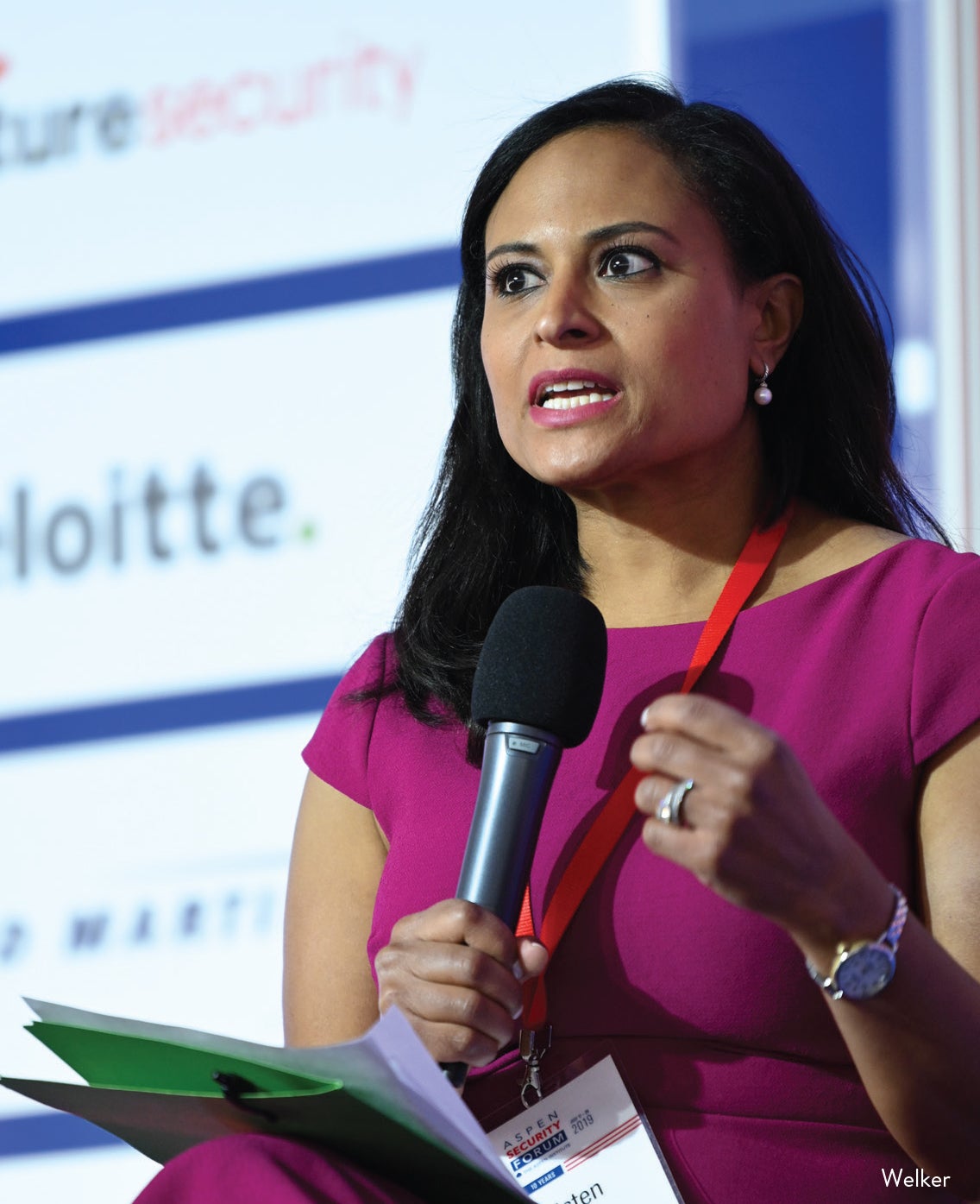 The Aspen Security Forum doesn’t just bring together the nation’s top officials and policymakers to share the latest intel. Sometimes it’s where they come to hear it. Adam Schiff, chair of the House Intelligence Committee, caused palpable alarm at this year’s forum when he revealed that it was during the 2018 forum he learned about Russian hacking attempts on three Senate campaigns. “That should not be the first time the Intelligence chair is hearing that,” he said during his conversation with NBC’s Kristen Welker—an understatement, the audience agreed. And he wasn’t particularly confident about the security prospects for the 2020 election.
The Aspen Security Forum doesn’t just bring together the nation’s top officials and policymakers to share the latest intel. Sometimes it’s where they come to hear it. Adam Schiff, chair of the House Intelligence Committee, caused palpable alarm at this year’s forum when he revealed that it was during the 2018 forum he learned about Russian hacking attempts on three Senate campaigns. “That should not be the first time the Intelligence chair is hearing that,” he said during his conversation with NBC’s Kristen Welker—an understatement, the audience agreed. And he wasn’t particularly confident about the security prospects for the 2020 election.
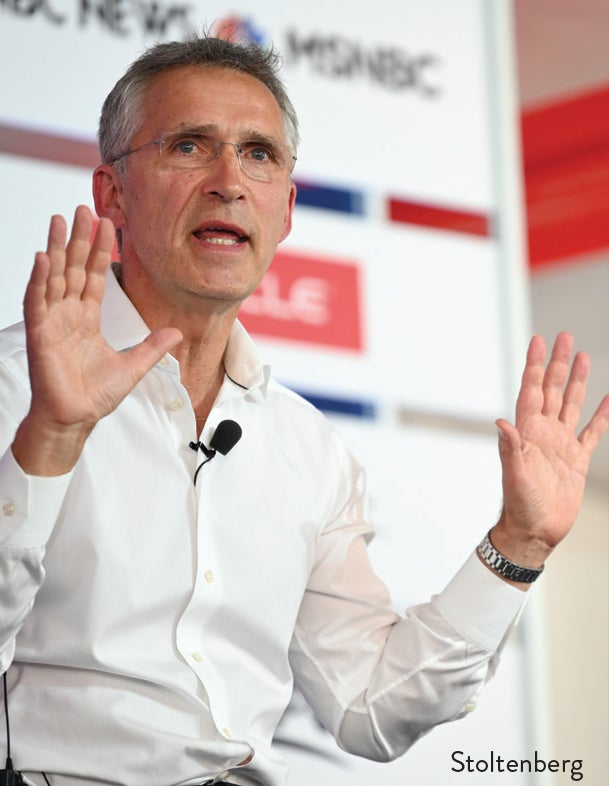 The topics this year included election security, the competition for primacy between the United States and China, and US foreign policy in the Middle East and other global hot spots. But one persistent sentiment endured: the value of alliances and common ground both domestically and overseas. NATO Secretary General Jens Stoltenberg set the tone during the forum’s opening session when he reminded participants that for 70 years, NATO’s global influence has relied on the principle of one for all, all for one. “We are 50 percent of the world’s military might,” he told NBC correspondent Courtney Kube. “We are stronger than any other potential adversary so long as we stay together. The most important thing is the resolve, the political will, the unity of the alliance. As long as that is in place, then we are safe.”
The topics this year included election security, the competition for primacy between the United States and China, and US foreign policy in the Middle East and other global hot spots. But one persistent sentiment endured: the value of alliances and common ground both domestically and overseas. NATO Secretary General Jens Stoltenberg set the tone during the forum’s opening session when he reminded participants that for 70 years, NATO’s global influence has relied on the principle of one for all, all for one. “We are 50 percent of the world’s military might,” he told NBC correspondent Courtney Kube. “We are stronger than any other potential adversary so long as we stay together. The most important thing is the resolve, the political will, the unity of the alliance. As long as that is in place, then we are safe.”
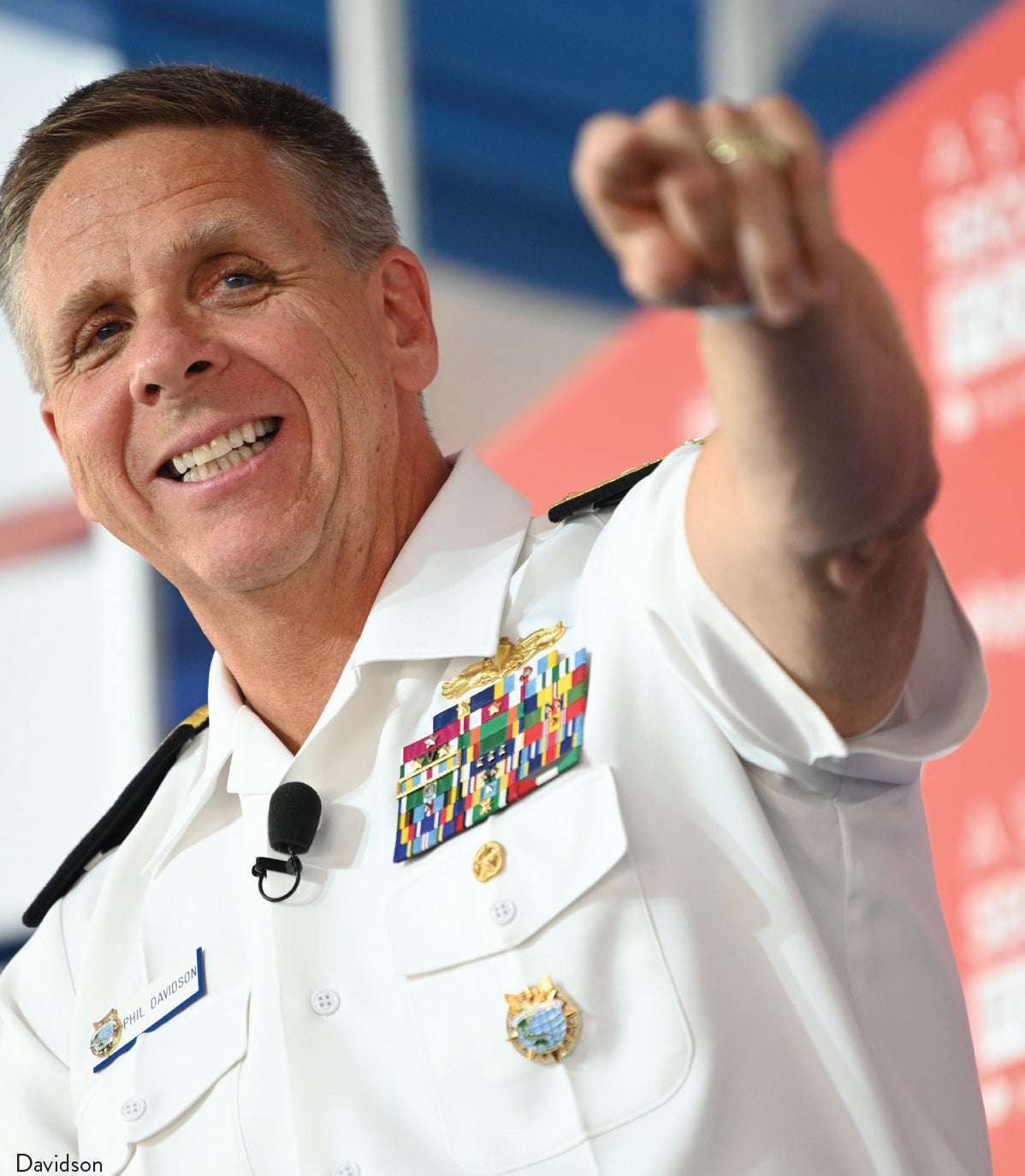 Philip Davidson, the commander of US Indo-Pacific Command, summarized the extent of his mandate—“from Hollywood to Bollywood, polar bears to penguins”—which includes more than half the world’s population. As China becomes increasingly belligerent in the contested South China Sea and elsewhere, he said, the Pentagon looks to its allies for crucial support, and India, with its population of 1.35 billion, offers the potential. For now, he said, “Japan is not just our most important ally in the region; they might be indeed our most important ally on the globe.”
Philip Davidson, the commander of US Indo-Pacific Command, summarized the extent of his mandate—“from Hollywood to Bollywood, polar bears to penguins”—which includes more than half the world’s population. As China becomes increasingly belligerent in the contested South China Sea and elsewhere, he said, the Pentagon looks to its allies for crucial support, and India, with its population of 1.35 billion, offers the potential. For now, he said, “Japan is not just our most important ally in the region; they might be indeed our most important ally on the globe.”
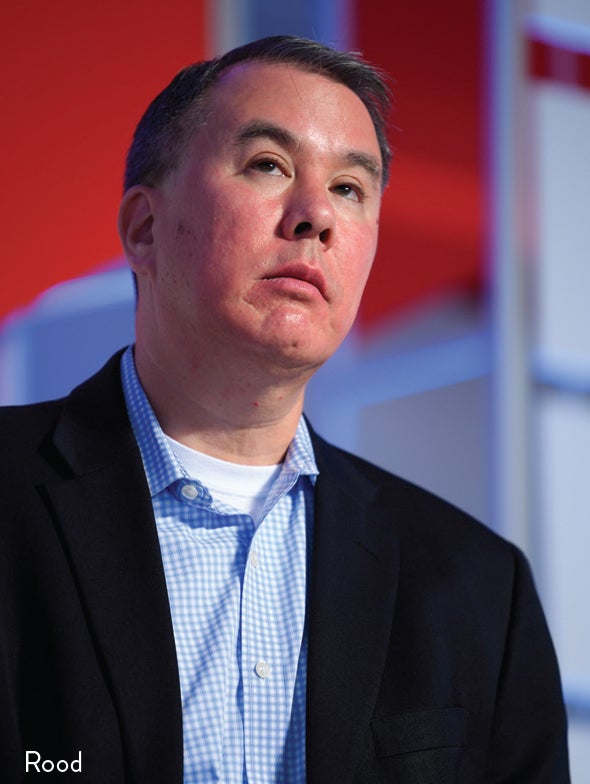 Echoing Davidson, other speakers emphasized that the principal current threat to US interests is China, not Russia. “China is the largest country with the ability to change our way of life in the United States and to change the global order, for good or ill,” John Rood, the undersecretary of defense for policy, told Fox News’s Catherine Herridge.
Echoing Davidson, other speakers emphasized that the principal current threat to US interests is China, not Russia. “China is the largest country with the ability to change our way of life in the United States and to change the global order, for good or ill,” John Rood, the undersecretary of defense for policy, told Fox News’s Catherine Herridge.
National security also takes domestic concerns into consideration. High on the list of internal threats is domestic terrorism stemming from white supremacists—a risk that became tragically apparent shortly after the forum with a racially motivated fatal shooting in El Paso, Texas. A panel on violent extremism moderated by The Daily Beast’s Kim Dozier confronted the subject head-on. Leading thinkers acknowledged that too little attention had been given to white supremacy: Nick Rasmussen, the former director of the National Counterterrorism Center, couldn’t recall a conversation on the topic during his time at the agency. He admitted to feeling a “little bit sheepish and almost embarrassed about that, because when you talk to Americans, [domestic violence] is much more likely these days to be at the front of their mind when they’re thinking about extremism and the threat of terrorism.”
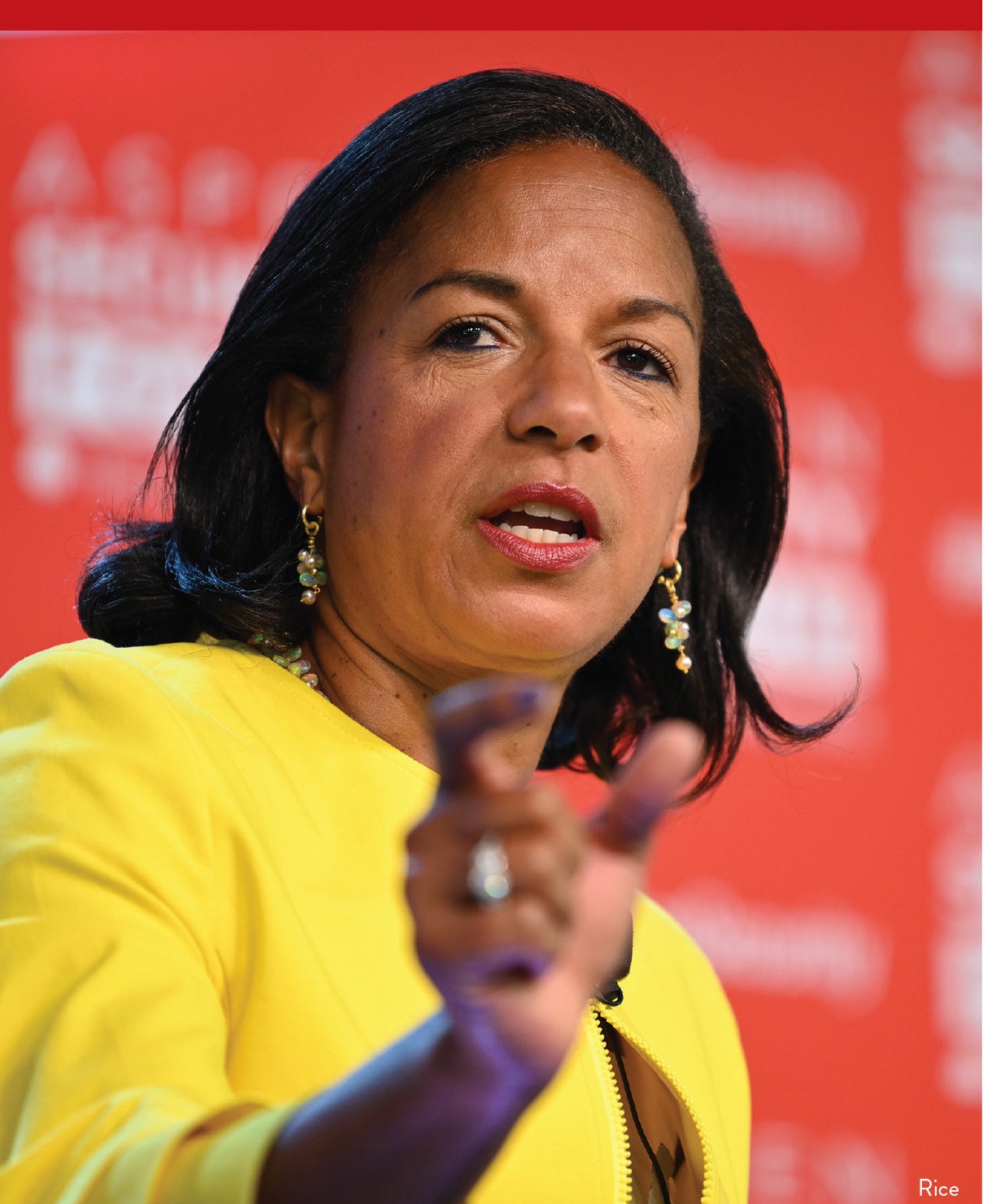 Two leaders from previous administrations had pointed criticisms for the present one. Reminding us that she was once a refugee, former Secretary of State and Institute trustee Madeleine Albright called on the audience to “reclaim America’s proud heritage by saying no to division and hate. . . . Today we have a president who does not speak for us. We must therefore speak up for ourselves.” Susan Rice, the former national security advisor to the Obama administration, was concerned for diplomatic relations: “We have our allies saying to us that what they hear out of the mouth of the president is wholly inconsistent with the values we purportedly share.”
Two leaders from previous administrations had pointed criticisms for the present one. Reminding us that she was once a refugee, former Secretary of State and Institute trustee Madeleine Albright called on the audience to “reclaim America’s proud heritage by saying no to division and hate. . . . Today we have a president who does not speak for us. We must therefore speak up for ourselves.” Susan Rice, the former national security advisor to the Obama administration, was concerned for diplomatic relations: “We have our allies saying to us that what they hear out of the mouth of the president is wholly inconsistent with the values we purportedly share.”
Aspen Security Forum organizers seem to have a knack for scheduling the event during international incidents, and this year participants and attendees contended with the news of Iran’s seizure of a British oil tanker. This made participants return even more repeatedly to the idea that friends matter. Sigal Mandelker, under secretary of the treasury for terrorism and financial intelligence, stressed that the US “works very closely with [its] European colleagues on countering that kind of malign behavior.” Despite policy differences, she assured the audience that our alliances remain strong.